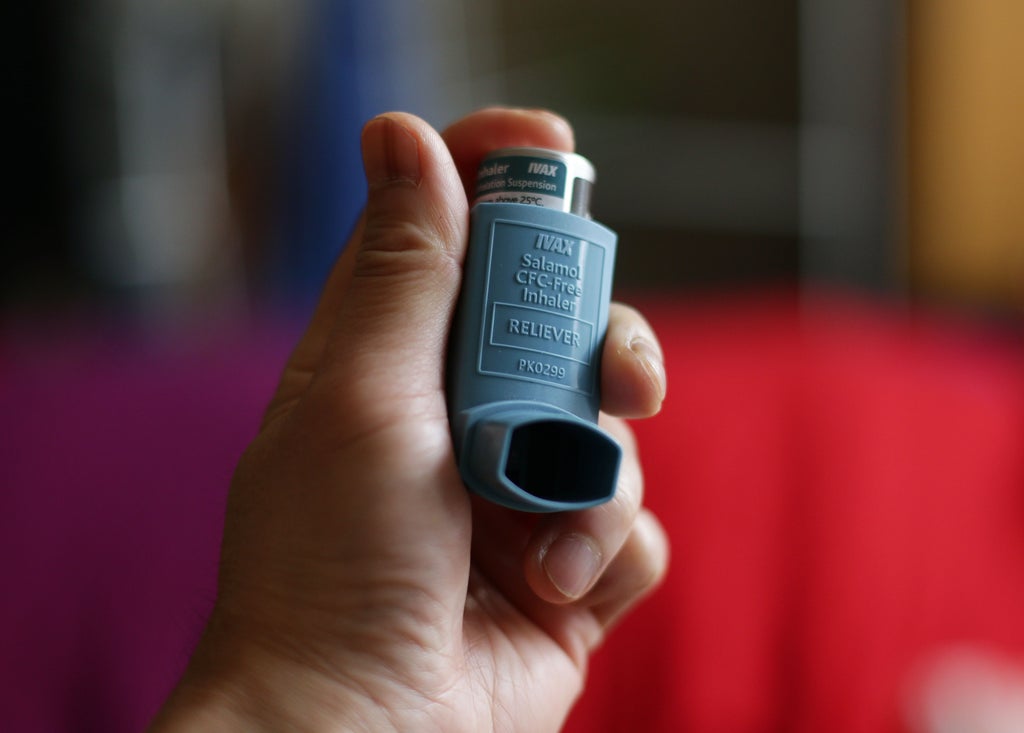
Asthma sufferers have been warned to take extra precautions this weekend due to fears that rising pollen levels could trigger life-threatening attacks.
The Met Office is predicting high pollen levels across most of England and Wales from Friday, with medium levels in other parts of the UK.
Asthma and Lung UK said more than three million people in the UK have lung conditions such as asthma or chronic obstructive pulmonary disease (COPD) and are at risk of flare-ups or attacks, which kill around four Britons every day.
Pollen can trigger symptoms such as a tight chest, wheezing and breathlessness in more than half of people living with asthma (59 per cent) and more than a quarter of those living with Chronic obstructive pulmonary disease (COPD), according to research from the charity.
Allergies can cause airways to tighten up and a build-up of sticky mucus, making it harder to breathe.
Those considered at risk have been told to continue taking their preventer inhalers, if they use them, and to keep their reliever inhaler with them at all times.
Asthma and Lung UK has also recommended that vulnerable asthma sufferers use a steroid nasal spray or stay indoors on high pollen days. For England and Wales, levels are set to remain high from Friday through to Monday.
“Tree pollen currently includes oak, small amounts of birch and a little grass pollen,” the Met Office said in its forecast, adding that spores are “limited”.
Dr Andy Whittamore, clinical lead for Asthma and Lung UK, said: “When pollen levels are at their highest this can be deadly for those with lung conditions like asthma who can suffer serious symptoms and have life-threatening attacks.
“These attacks can leave people fighting for breath, which can be terrifying, but there are things they can do to look after themselves.
“Using your preventer inhalers as prescribed is important as the medicine reduces sensitivity and swelling in the airways, helping to prevent symptoms such as wheezing and coughing before they even start.
“We also advise people to carry their reliever inhalers every day, especially when they are out and about enjoying the sunshine in case pollen does cause a flare-up of their symptoms.
Reliever inhalers quickly relax the muscles in the airways and ease symptoms immediately during an attack.
Dr Whittamore added: “The third thing people can do is to use a steroid nasal spray every day, together with non-drowsy antihistamine tablets to help stop the allergic reaction.
“People should also check pollen and air pollution forecasts in their local area, so they can avoid going outdoors as much as possible on high pollen days.”
Climate change is believed to be responsible in prolonging annual allergy seasons and making pollen counts higher. Scientists believe these trends will worsen as the planet further heats up.
A study published last month in the journal Nature Communications said pollen season could start 10 to 40 days earlier than usual and last five to 20 days longer, with pollen levels that could triple in some places if carbon emissions aren’t curbed.
Warmer weather allows plants to start blooming earlier and continue to bloom later in the season, while carbon dioxide in the air from burning fuels such as coal, gasoline, and natural gas helps plants produce more pollen, the scientists said.
Another study published last year said that, since 1990, allergy seasons have gotten longer and more pollen-filled, driven by rising global temperatures.







